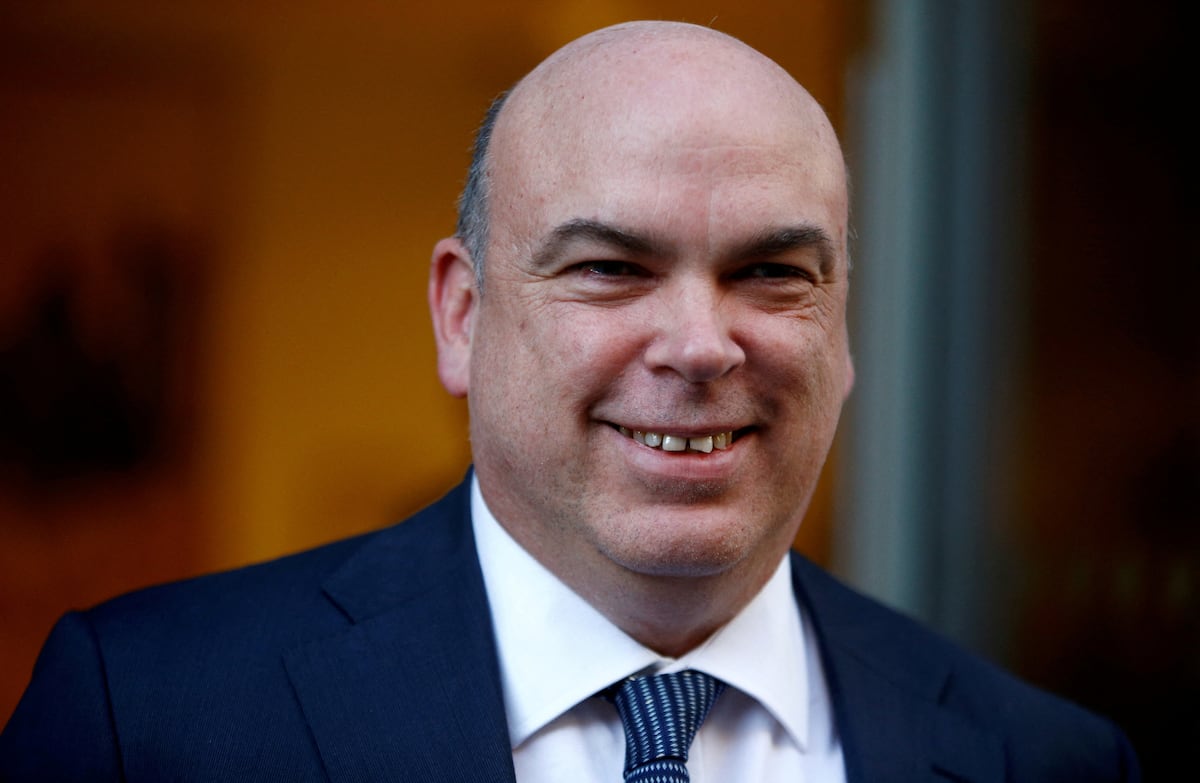


If the life of Mike Lynch, 59, was a storm of business successes, enormous enrichment, and political popularity, followed by a fall from grace, humiliating extradition to the United States and a long legal battle, he managed to survive it all — that is until he was surprised by a real storm that sank his yacht off the coast of Sicily. His body was recovered August 22, four days after the accident.
In late July, the founder of British business software company Autonomy posed in the living room of his home in London’s affluent Chelsea neighborhood for The Sunday Times. He wore a wary smile for the camera, a month and a half after a Californian jury acquitted him of 15 counts of fraud, misrepresentation and conspiracy to commit a crime. Handed over by the British government to U.S. authorities in May last year, Lynch spent 13 months in San Francisco under house arrest with his dog Faucet, a Shetland sheepdog, with federal police officers guarding him.
After spending €27 million ($30 million) on lawyers, a 12-week trial, and being grilled on the stand by prosecutors, Lynch heard the magic words “Not Guilty” uttered by the jury foreman on June 6. The officers who had been guarding him disconnected the electronic monitoring device strapped to his ankle and left. The judicial authorities returned the €90 million ($100 million) bail money. “When you hear that answer, you jump universes,” Lynch explained to the Times. “If this had gone the wrong way, it would have been the end of life as I have known it in any sense.” He was facing a 25-year prison sentence.
Lynch’s backstory comes in shades of light and dark. The son of Irish immigrants to England, his first job was mopping hospital floors. He then landed a scholarship to Cambridge University. Subsequently, he could be a “blunt and dictatorial” executive “who always expected to get his way,” as a High Court judge in London described him.
At college, Lynch specialized in signal processing — detecting specific patterns in huge amounts of electronic data. Those were the first steps towards today’s sophisticated search and artificial intelligence systems. In 1996, he launched Autonomy. Fifteen years later, it was the largest publicly traded technology company in London and employed 2,000 people across 20 countries. Clients such as AT&T, BNP Paribas and the BlackRock investment fund contracted its software.
The U.K. was by then a country deindustrialized and focused on the service sector, and it needed its own national technological revolution icon. Enter Lynch, who was dubbed the “British Bill Gates.” Then conservative prime minister David Cameron brought the popular businessman onto his Science and Technology Council, the BBC added him to its board as a non-executive director and, in 2006, he received the Order of the British Empire for his contribution to the advancement of British industry.
The success of someone like Lynch is sometimes the lifeline to which a sinking company, such as Hewlett Packard, clings. In the U.S., HP — which has always claimed to be the true embryo of the Silicon Valley miracle starting out of a Palo Alto garage — had become a dinosaur by the end of the first decade of the 21st century with products that could not compete with Apple’s MacBooks, Air Books, iPhones and iPads.
Its CEO, German-born Leo Apotheker, spotted salvation in Lynch’s company. HP would recapture its heyday with a turnaround in the business. It would sell enterprise software. To this end, HP acquired Autonomy in 2011 for $11.7 billion, an amount that incorporated an exorbitant 64% markup on the company’s actual price. Overnight, the British businessman, then father of two girls aged nine and six, became one of the richest men in the U.K.
But HP’s shareholders and investors flatly rejected the company’s acquisition. They ousted Apotheker just five weeks after the announcement, and replaced him with Meg Whitman, a queen of the new tech economy, who had just failed to become Republican governor of California. She had spent $140 million out of her own pocket on the campaign. She was hungry for success and had few scruples.
A year after the purchase, Whitman ordered HP’s value to be depreciated by $8.8 billion, and launched a legal battle against Lynch, accusing him of misrepresenting the accounts and of having inflated the value of Autonomy, at the time of the sale, by $5 billion.
Referring to millions of documents, HP’s team of lawyers and U.S. prosecutors described questionable practices in Lynch’s management, such as paying for certain services to companies to which he then sold his software as a way of inflating the business and presenting a trumped-up company image. The British businessman maintained his innocence throughout and accused HP of raging about a poorly paid and poorly managed purchase. “Daddy had sold someone a plant. They hadn’t watered it, it had died, and they were trying to blame Daddy for this,” Lynch explained to his then six-year-old daughter.
That version was dismissed in 2022 by a High Court judge in the U.K., who, faced with two scenarios — “fraud on a grand scale or relentless witch-hunt?” — chose to convict Lynch and his CFO, Sushovan Hussain. Former British Home Secretary, Priti Patel, then took the extreme decision to extradite Lynch, a British citizen, to the U.S.
The chances of an American jury acquitting him were less than 1%. There was even less chance that Lynch would end up dead, at the end of this long story, at the bottom of the Mediterranean, just as he was celebrating his freedom.
Sign up for our weekly newsletter to get more English-language news coverage from EL PAÍS USA Edition